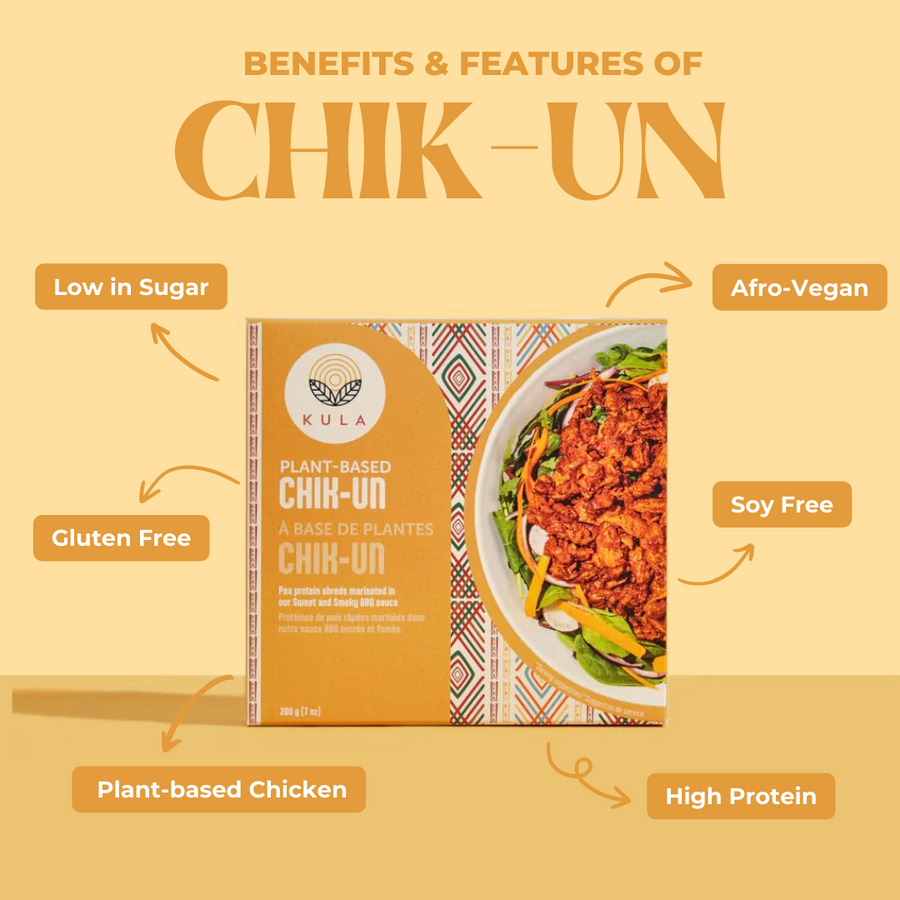Everything About Healthy And Balanced Food: Benefits of Taking On Plant Based Alternatives
The conversation bordering plant-based diet plans has actually gained substantial focus over the last few years. Several individuals are discovering the potential health and wellness benefits, dietary advantages, and environmental effects related to these nutritional options. As people come to be extra familiar with their food's impact on well-being and sustainability, concerns develop about the usefulness of adopting such a way of living. What specific adjustments can one expect, and how might these choices improve not only individual wellness yet also the planet's future?
Understanding Plant-Based Diet Regimens
Several individuals connect plant-based diet plans generally with vegetarianism or veganism, these diet regimens can encompass a large array of eating patterns that prioritize whole, minimally processed plant foods. Such diet regimens frequently include fruits, vegetables, whole grains, nuts, seeds, and vegetables, while getting rid of or limiting animal products. This versatility enables individuals to tailor their dietary selections according to personal choices and nutritional demands. Some may adopt a mainly plant-based diet while still sometimes consuming meat or milk, frequently described as a flexitarian technique. The emphasis stays on integrating more plant foods, which can lead to a varied selection of meals and tastes. Comprehending these numerous analyses of plant-based eating is necessary for appreciating its accessibility and appeal in modern food society.
Wellness Conveniences of Plant-Based Foods
The health advantages of plant-based foods are considerable, supplying a nutrient thickness advantage that sustains total wellness. Research study shows that these foods can boost heart wellness and play a necessary duty in effective weight monitoring. By including more plant-based choices, individuals might enhance their nutritional selections and promote lasting health and wellness.
Nutrient Thickness Benefit
Nutrient thickness plays a vital function in the health and wellness advantages of plant-based foods, making them an engaging selection for those looking for a balanced diet plan. Plant-based foods, such as fruits, vegetables, vegetables, nuts, and entire grains, are often rich in crucial vitamins, minerals, and anti-oxidants while being lower in calories. This high nutrient density permits people to consume fewer calories while still meeting their nutritional needs. Additionally, these foods are loaded with nutritional fiber, promoting digestion health and assisting in weight management. By integrating nutrient-dense plant-based options, consumers can improve their overall health, sustain their body immune systems, and lower the danger of persistent conditions. Eventually, the nutrient density of plant-based foods highlights their value in a health-conscious way of living.
Heart Wellness Enhancement

Weight Monitoring Assistance
Along with promoting heart wellness, a plant-based diet plan can significantly aid in weight monitoring. This nutritional approach stresses entire foods such as fruits, veggies, beans, nuts, and whole grains, which are usually lower in calories and higher in fiber compared to animal-based items. The high fiber material assists boost satiation, decreasing total calorie consumption. Plant-based diet regimens are usually abundant in essential nutrients while reduced in harmful fats, making it less complicated to keep a healthy weight. Research indicates that people who adopt a plant-based way of life tend to have lower body mass indexes (BMIs) and experience more successful weight-loss compared to those who consume meat-heavy diets. Subsequently, accepting plant-based choices is a tactical selection for efficient weight administration
Nutritional Value of Plant-Based Ingredients
Plant-based ingredients are rich in important nutrients, supplying a diverse range of vitamins, minerals, and anti-oxidants that add to general wellness. A comparison of protein resources discloses that while pet items are commonly deemed exceptional, numerous plant-based options offer adequate protein and other helpful substances. Comprehending the nutritional value of these ingredients can help people make notified nutritional options.
Vital Nutrients in Plants
Nutrient-rich active ingredients found in plants provide a varied range of necessary minerals and vitamins that add greatly to overall health. These components are rich in vitamins A, C, and K, which support immune function, vision, and blood clot, specifically. Furthermore, plants provide vital minerals such as magnesium, calcium, and potassium, critical for heart wellness, muscular tissue function, and bone strength. The visibility of fiber in plant-based foods help food digestion and advertises a healthy and balanced digestive tract microbiome. Anti-oxidants, located generously in fruits and vegetables, assistance combat oxidative tension and reduce swelling. Furthermore, several plant foods are low in calories yet high in nutrients, making them a superb option for those looking for to keep a healthy and balanced weight while making certain perfect nutrient consumption.
Comparing Healthy Protein Resources
Healthy protein sources differ considerably in their dietary profiles, with plant-based components offering one-of-a-kind advantages. Unlike animal proteins, which typically consist of hydrogenated fats and cholesterol, plant healthy proteins tend to be lower in these unhealthy components. Legumes, nuts, seeds, and whole grains are rich in vital amino acids, fiber, vitamins, and minerals. For example, lentils offer high protein content alongside significant iron and folate, while quinoa is a complete healthy protein, using all 9 vital amino acids. Additionally, plant-based healthy proteins are commonly come with by antioxidants and phytochemicals that sustain total health and wellness. The shift to plant-based protein sources not only boosts nutritional consumption yet likewise lines up with lasting dietary practices, lowering ecological influence and advertising long-lasting wellness benefits.
Ecological Influence of Plant-Based Eating
As awareness of climate change grows, lots of individuals are discovering lasting dietary choices that can substantially lessen their environmental footprint. Plant-based consuming has actually arised as a significant contributor to minimizing greenhouse gas discharges, which are mostly linked with livestock production. The cultivation of fruits, legumes, grains, and veggies commonly needs less sources, such as water and land, compared to animal farming. In addition, plant-based diets can lead to decreased logging, as less land is required for grazing animals or growing animal feed. By moving in the direction of plant-based options, customers can support biodiversity and promote healthier communities. On the whole, welcoming plant-based consuming not just benefits individual wellness but also stands for a crucial step towards ecological sustainability and preservation initiatives.
Overcoming Common Misconceptions
While numerous people recognize the advantages of a plant-based diet plan, several misunderstandings often hinder them from completely welcoming this lifestyle. An usual idea is that plant-based diet plans do not have sufficient healthy protein; nonetheless, many plant sources, such as beans, nuts, and tofu, provide ample protein. Additionally, some presume that this diet regimen is costly, when as a matter of fact, staples like beans, rice, and seasonal veggies can be quite economical. One more mistaken belief is that plant-based consuming is extremely limiting, whereas it really supplies a varied variety of tastes and foods. Lots of stress that a plant-based diet might lead to deficiencies, yet with appropriate planning, individuals can obtain all required nutrients, consisting of vitamins and minerals, while enjoying a broad range of tasty meals. Vast Tips for Transitioning to a Plant-Based Way of life
Making the shift to a plant-based way of life can be an enriching experience, though it frequently calls for some support to browse the first modifications. People are motivated to begin gradually, including more fruits, veggies, legumes, and entire grains into their dishes while lowering meat and dairy products intake. Meal planning is necessary; preparing an once a week menu can help reduce the modification and protect against last-minute undesirable selections. Exploring brand-new recipes and cooking methods can also enhance the experience and maintain enjoyment regarding plant-based eating. Furthermore, signing up with support system or communities can give inspiration and share useful suggestions. Lastly, remaining informed regarding nourishment assurances balanced dishes, protecting against deficiencies while promoting a healthy and balanced, enjoyable plant-based lifestyle.
Delicious Plant-Based Dish Ideas
Exploring tasty plant-based dish ideas can motivate individuals to welcome an extra healthy diet. One popular choice is a passionate quinoa salad, featuring cherry tomatoes, cucumber, and a zesty lemon-tahini dressing. An additional fave is a mouthwatering lentil stew, packed with carrots, celery, and aromatic herbs, ideal for a calming supper. For breakfast, overnight oats made with almond milk, chia seeds, and topped with fresh berries supply a healthy start to the day. Additionally, a lively vegetable stir-fry with tofu and a range of vivid veggies can be a fast yet pleasing meal. Luscious avocado salute on whole-grain bread, sprayed with seeds and flavors, offers a simple yet tasty treat. These dishes display the selection and richness of plant-based eating.

Regularly Asked Concerns
Can a Plant-Based Diet Plan Provide Enough Healthy Protein?
The concern of whether a plant-based diet regimen can give sufficient protein prevails. Numerous resources, consisting of vegetables, nuts, seeds, and whole grains, can fulfill healthy protein needs efficiently, sustaining a nourishing and well balanced diet for people.
Are Plant-Based Diet Regimens Ideal for Children?
The viability of plant-based diet regimens for youngsters depends upon careful preparation. Sufficient nutrients must be assured, consisting of minerals, healthy proteins, and vitamins. With proper assistance, such diet plans can support healthy development and growth in kids.
How Do I Eat Out on a Plant-Based Diet regimen?
Eating out on a plant-based diet plan involves looking for dining establishments with varied menus, requesting adjustments, and checking out vegan-friendly options. Planning in advance and connecting dietary preferences can boost the dining experience while preserving dietary options.
What Prevail Allergens in Plant-Based Foods?
Usual allergens in plant-based foods consist of soy, gluten, nuts, and seeds - Plant Based Chicken. People complying with a plant-based diet plan ought to know these allergens and read tags meticulously to stay clear of adverse responses and assure safe consumption
Can Plant-Based Diets Aid With Weight-loss?
Research study shows that embracing a plant-based Plant Based Chicken diet plan might help with weight management because of its typically lower calorie density and higher fiber material. This combination can boost satiation, helping individuals manage their caloric intake effectively. Numerous people associate plant-based diet regimens primarily with vegetarianism or veganism, these diet regimens can encompass a large array of consuming patterns that focus on entire, minimally refined plant foods. Nutrient thickness plays a crucial duty in the health and wellness advantages of plant-based foods, making them a compelling choice for those looking for a balanced diet regimen. Plant-based diet regimens have been shown to substantially improve heart health and wellness, as they frequently consist of aspects that sustain cardio feature. In enhancement to advertising heart health and wellness, a plant-based diet can substantially aid in weight monitoring. A typical belief is that plant-based diets do not have adequate healthy protein; however, numerous plant resources, such as beans, nuts, and tofu, offer ample healthy protein.